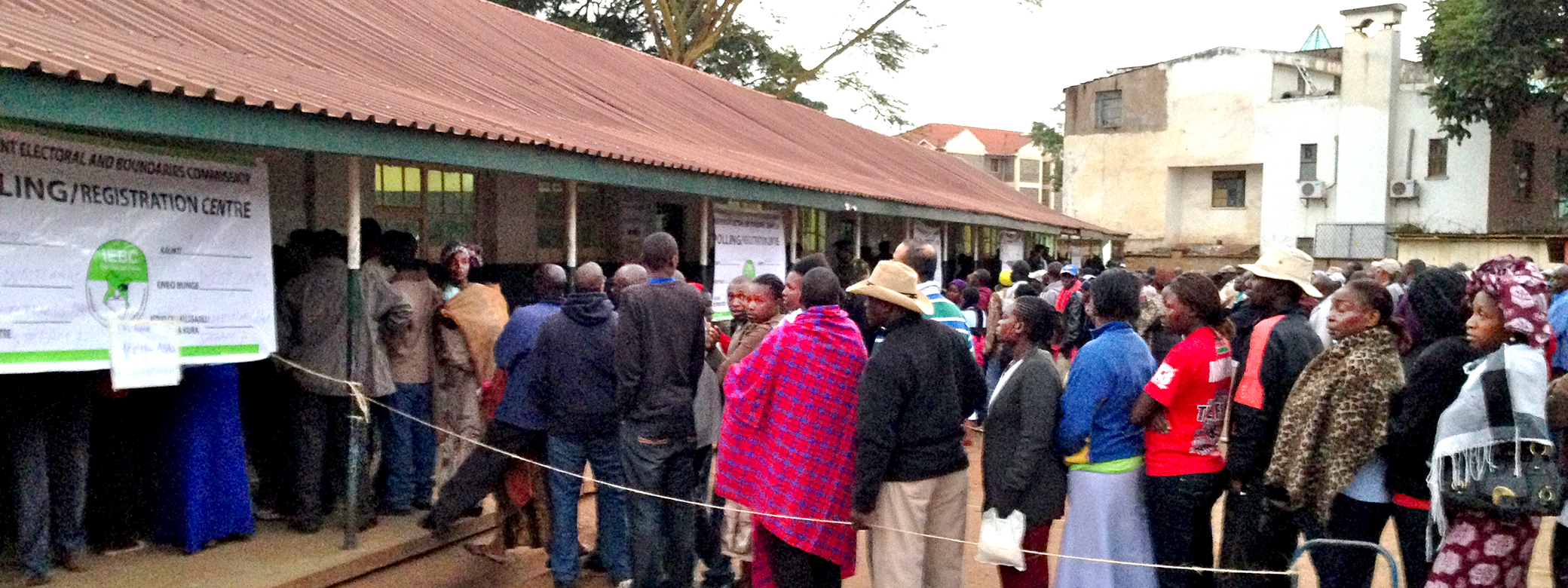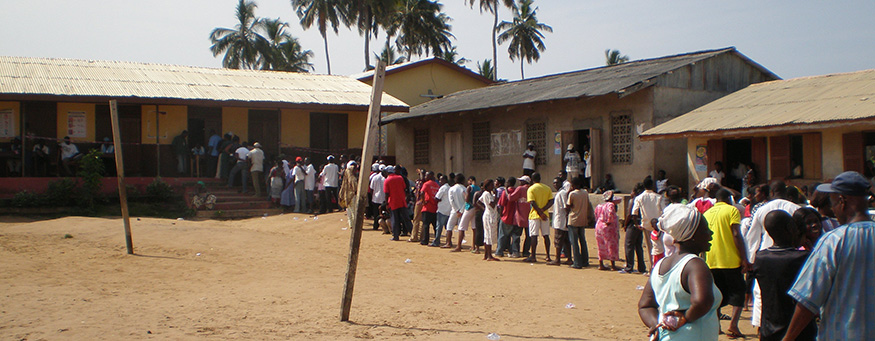
In Washington state, voting is easy. Voters fill in boxes on a mail-in ballot from the comfort of their home. But in many new democracies, voters stand in line for a full day to cast their ballot. In some places, they risk violence. Despite the challenges, voter turnout in emerging democracies is often surprisingly high. James Long, UW professor of political science, wanted to understand why.
What motivates people to vote has been a puzzle for political scientists for generations. Long recalls grappling with the question in graduate school. “Voting takes time,” he says. “In some cases, it can be costly to the individual. In a democracy, a single ballot almost never decides an election. In that sense, it’s irrational to vote. So why does anybody bother?”
A popular theory among economists and political scientists, looking at American voters, is that people feel an innate duty to uphold the principles of democracy — a duty ingrained over hundreds of years of democratic government. Long wondered whether that same duty motivated voters in countries lacking a long democratic tradition.
In collaboration with Danielle Jung (Emory University), Long studied voter participation in four emerging democracies: Ghana, Uganda, Kenya, and Afghanistan (before Afghanistan’s fragile democracy collapsed after the US withdrawal in 2021). Their book about the research, “The Social Origins of Electoral Participation in Emerging Democracies,” was published by Cambridge University Press in 2023.
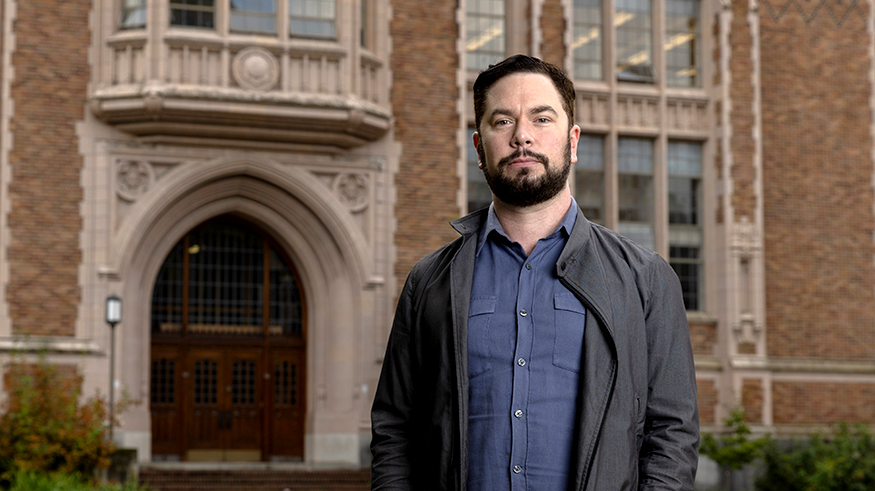
A Community Effort
Long had previously visited some countries in this study as an election observer. He’d seen firsthand the challenges voters faced. “It’s costly for Ghanaians to vote,” Long says. “It takes all day. In Uganda and Kenya, there may be violence. In Afghanistan, they could be attacked by the Taliban. And yet the voting rate is consistently 70 percent in Ghana and can get as high as 86 percent in Kenya.”
The four countries made an interesting comparison study. The three in Africa are comparable in size and ethnic diversity, with similar political trajectories as new democracies, but with different party systems. Ghana has two parties that have alternated in power, similar to the US, while Uganda has a single dominant party that always wins. Kenya is more chaotic, with parties that come and go and lots of turnover. Afghanistan, when it was a democracy, had no formal parties to speak of and voters faced the most challenges, including frequent Taliban threats. “Yet millions of Afghans still voted,” says Long.
If you can’t show that you voted, your neighbors may get angry. It can sometimes feel coercive even as it helps support community welfare.
Through surveys, observation, and other sources, Long and Jung found that the motivation to vote is similar in each of these new democracies despite their differing political systems. Rather than a duty to democracy, voters feel a duty to their community. High voter turnout signals that the community deserves services the government can offer.
“In a developed, wealthy, consolidated democracy like the US, leaders have to provide things to the whole nation, or a governor to the whole state,” says Long. “But politicians in a country like Ghana or Kenya have way fewer resources to distribute, so they have to be very targeted. And the only way for communities to signal to politicians that they deserve services is to turn out and vote. They must collectively organize and vote on election day, or else their community might suffer.”
The Power of Inked Fingers
For those still not motivated to endure the hassle of voting, there’s another highly effective incentive in these countries: Those who don’t vote may be shunned by their neighbors.
With mail-in ballots, an individual’s voting participation is a private matter. But when neighbors stand in line together all day waiting to vote, there’s no anonymity. Everyone sees who’s participating. An inked finger provides additional confirmation.
Many countries around the world — about 90, according to Long — use “electoral ink” to keep individuals from voting more than once. After casting their vote, each person goes to a table to have their thumb inked. “Sometimes you dip it in a pot, sometimes they use a marker,” says Long. “In Ghana, they call it ‘the power of the thumb.’ People show off their inked finger with pride.”
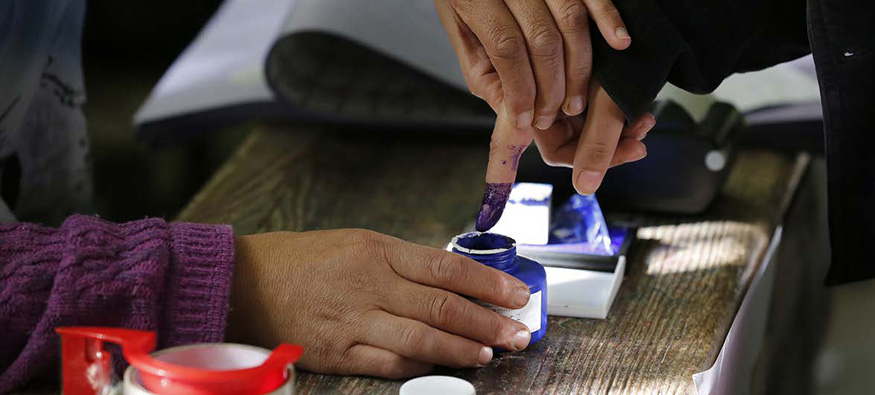
Although intended to prevent election fraud, the inked finger also serves as an “I Voted!” sticker. Those without that proof may face consequences. They may not be allowed to board the local bus, and bars may not serve them alcohol. Neighbors may be distrustful, possibly long past election season. “If you can’t show that you voted, your neighbors may get angry,” Long says. “It can sometimes feel coercive even as it helps support community welfare.”
Nothing Easy About Democracy
Long sees high levels of voting participation as an encouraging sign for the young democracies he and Jung studied. But he is realistic about the challenges these countries face. Elections are not always fair or safe. Many elected politicians are dishonest. In Uganda, the same party always wins. “I think it’s okay to be critical of problematic elections in these countries,” Long says. “Activists and the international community pushed elections starting 30 years ago, expecting peace and economic development to take off. It often hasn’t.”
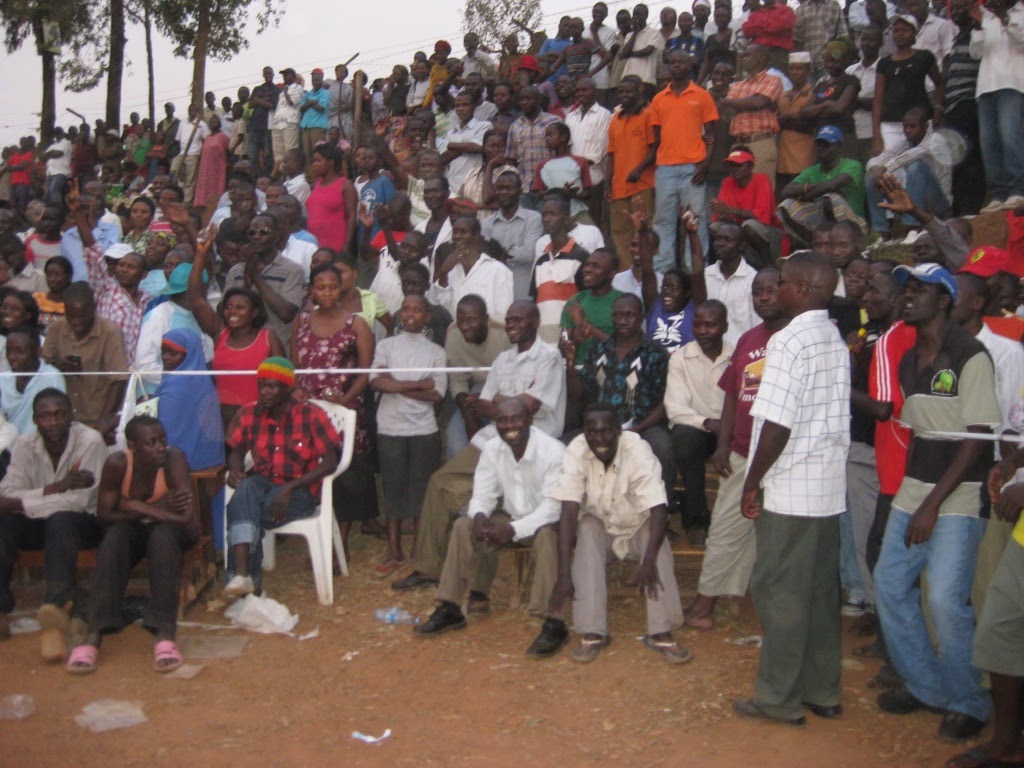
But Long also offers a more sanguine view, noting that establishing democracy in the US was not a smooth process either. In the decades after the US Constitution was signed, many elections were rigged. Women, and men without property, couldn’t vote. Slavery was still present. Fast forward to the Civil War, when Americans fought over who should be allowed to participate in our political system. Nothing about democracy was easy.
“Even after the Civil War, the United States had a lot to improve, and still does,” Long says. “That’s normal. Today’s young democracies, they’re not perfect, but we shouldn’t give up on them.”
“It’s very easy to get cynical about elections when democracies still face many challenges,” Long says. “You think, ‘What’s the point of elections? Why are we wasting our time?’ But I don’t think millions of Ghanaians, Kenyans, Ugandans, and Afghans would waste their time voting if they didn’t think it was important — and remember, the Taliban won on the battlefield, not at the ballot box. Let their voters' voices be what we focus on by investing in improving these institutions so they are as good as the people who are voting for them.”
More Stories

AI in the Classroom? For Faculty, It's Complicated
Three College of Arts & Sciences professors discuss the impact of AI on their teaching and on student learning. The consensus? It’s complicated.

A Sports Obsession Inspires a Career
Thuc Nhi Nguyen got her start the UW Daily. Now she's a sports reporter for Los Angeles Times, writing about the Lakers and the Olympics.

A Healing Heart Returns
In February, the UW Symphony will perform a symphony that Coast Salish elder Vi Hilbert commissioned years ago to heal the world after the heartbreak of 9/11. The symphony was first performed by the Seattle Symphony in 2006.
